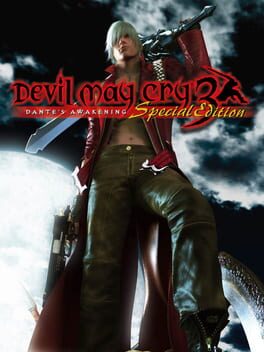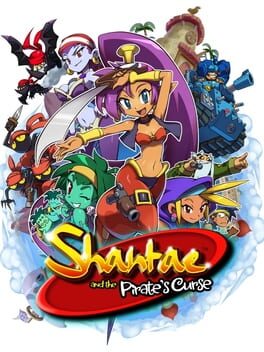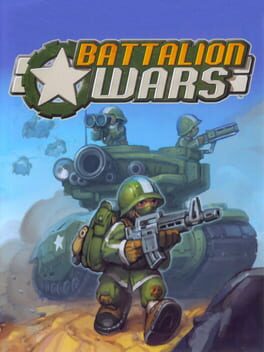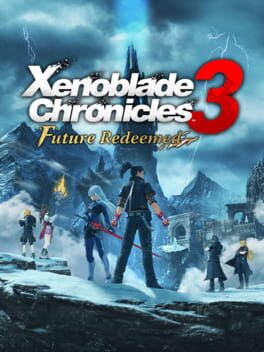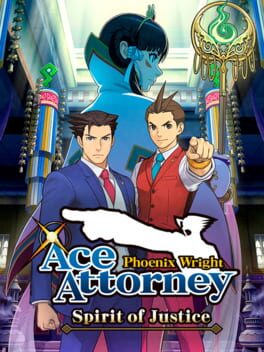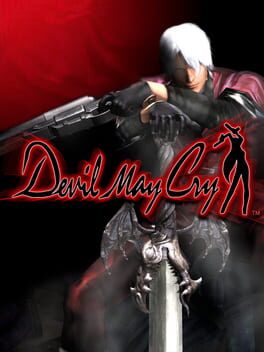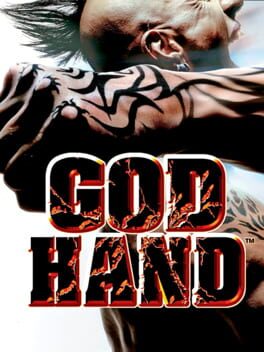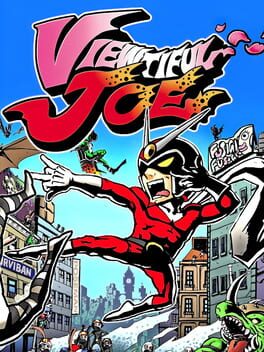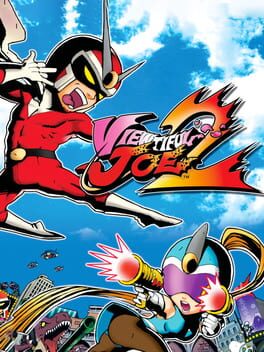Chrono
10 reviews liked by Chrono
Battalion Wars
2005
"An incredibly fun if slightly limited RTS third person shooter published by Nintendo" sounds exactly like something that doesn't exist outside of maybe the Starfox series, but here Battalion Wars goes proving that wrong in spades.
It's super good, all around. The music, the missions, the units, the variations, it's all really really good. There's a handful of exceptions of course, Air Superiority is in full force but that's a major thing in real military conflict, the vehicles are some of the worst controlling things I've ever had to play with including rough steering and physics that are either too heavy or WAY too light, and some units just bluntly outclass all other types such as Assault vets who's machine guns can mow down every infantry unit and some vehicles and emplacements with ease. But all in all, it's pretty great.
Huge kudos to the near blatant WW1/WW2 era Germany antagonist nation fused with Transylvanian vampires that are the revival of the undead warmonger empire of pure unbridled nothing held back Nazi references for 2 of the last four missions. This game is fucking wild and it takes itself completely seriously and I'm all here for it.
It's super good, all around. The music, the missions, the units, the variations, it's all really really good. There's a handful of exceptions of course, Air Superiority is in full force but that's a major thing in real military conflict, the vehicles are some of the worst controlling things I've ever had to play with including rough steering and physics that are either too heavy or WAY too light, and some units just bluntly outclass all other types such as Assault vets who's machine guns can mow down every infantry unit and some vehicles and emplacements with ease. But all in all, it's pretty great.
Huge kudos to the near blatant WW1/WW2 era Germany antagonist nation fused with Transylvanian vampires that are the revival of the undead warmonger empire of pure unbridled nothing held back Nazi references for 2 of the last four missions. This game is fucking wild and it takes itself completely seriously and I'm all here for it.
Hi-Fi Rush
2023
Miss a beat in Hi-fi Rush and Chai will attack on beat anyway. It’s probably unreasonable to expect it to punish this sort of thing in the same ways that other rhythm action hybrids like Patapon, Metal Hellsinger or Cadence of Hyrule do, because it’s so notable in part specifically for being so different from everything else, but there’s being different and then there’s being disincentivisingly handholdy. It’s a symptom of a larger problem – Hi-fi Rush seems almost afraid of allowing the player to fail.
With a scarce few exceptions like one of the final boss’ more belligerent attacks, the contrast between proper timing and mistiming in Hi-fi Rush isn’t success versus failure, it’s success versus negligibly less success. It’s true that enough mistimed attacks can detract from your final rank, but this is inconsistent with how assist attacks contribute to your score despite not requiring any timing at all (exacerbated by their charitable cooldowns), as does an offbeat jump if it ‘avoids’ an enemy’s attack that was nowhere near you anyhow, and the penalty’s so minor it’s hard to notice. Rhythm Master difficulty goes some way toward assuaging all this by giving you an immediate game over if your rhythm meter falls below C, but it’s not hugely impactful because of the aforementioned inconsistencies, while the fact that it’s only available after beating the game also makes the common action game mantra of “the first playthrough is the tutorial” feel unfortunately literal.
As another example of this, Hi-fi Rush affords the player a generous helping of attack magnetism, or whatever you prefer to call the melee equivalent of aim assist that’s particularly common in western action games. Chai’s mobility is so rigid that I imagine the designers may have felt the absence of this might’ve led to a frustrating amount of dropped combos. Even still, it’s at best unnecessary given that Chai already has an equivalent of Nero’s Snatch from DMC4 & 5, and at worst a net negative for how it diminishes positioning. It doesn’t stop Hi-fi Rush from getting better as you yourself do, like any other worthwhile action game, but being able to both feel and see the developers artificially nudging things in your favour like this does cheapen the appeal of getting to grips with what is, in the grand scheme of things, quite a cool combat system.
Apparent influences from other action games, like its equivalent of Astral Chain & Bayonetta 3’s wink attacks, lend themselves naturally to the combat’s rhythm-based formula and complement the game’s lovely presentation well. Environmental doodads bounce to the beat like in Metal Hellsinger, diegetically communicating helpful information to the player not only in terms of timing but also because enemies always attack to the beat, which ensures consistency on their part (albeit hampering their ability to surprise you). Another caveat to the combat’s strengths, though, is that there isn’t really enough of it, at least until you unlock Rhythm Tower i.e. the Bloody Palace analogue.
Most levels in Hi-fi Rush are very long by action game standards and a hefty proportion of nearly all of them consists of platforming segments. This sounds inoffensive in a vacuum, particularly for a genre in which “gimmick” seems to be a dirty word in most people’s minds, until the stiffness of Chai’s movement and the absence of a proper bossfight for two or three entire chapters in the game’s midsection make it apparent how drawn-out these sections often are. The latter feels especially deflating because the bosses that are here are of a really high standard, being diverse both visually and mechanically, with a huge amount of effort and artistry gone into even just the freezeframes in their introduction cutscenes. I’d much rather have had a couple more of them than be Letz Shaked twice in a row.
What makes it feel especially disappointing to be part of the internet’s propensity for contrarian armchair criticism, aside from the fact that Hi-fi Rush couldn’t be any more up my street conceptually, is that it isn’t a game that deserves to be ragged on like this. At the end of the day, this is a new IP in an historically niche genre that’s feature-complete out of the box, bereft of tonal carcinogens like irony or cynicism, stuffed with substantial post-game unlocks and has Korsica in it. It’s just also one which is eclipsed several times over in depth, variety, pacing and general well-consideredness by any number of other action games both modern and from the period it’s a love letter to, which don’t tend to lack for sincerity, charm or bonus content in the first place.
Is it funny, deserving of success and easy to recommend to anyone interested in action games despite this? Yup. Is it the best action game ever, as suggested by its average rating here (at the time of writing) and elsewhere? That's kind of wild. I’m potentially open to the idea that Hi-fi Rush is in the top seven or so best games that Masaaki Yamada has worked on.
More firmly, I’m genuinely delighted that Tango’s thrown its hat into the action game ring and that doing so’s rewarded its clearly, transparently talented staff with their most unambiguous success so far. I’d love even more to be able to speak of them in the same vein as Capcom or Platinum or Team Ninja who, barring one or two semi-recent and enormously overemphasised missteps apiece, have long comprised a reliable triumvirate of quality action experiences which light up my frontal lobe in a way few other developers can. How often I found myself smiling during Hi-fi Rush’s cutscenes and character interactions versus actually playing the game means that I can’t yet, but it’s still promising enough to be indicative of their potential to someday join them on stage as one of the action genre’s rockstars.
With a scarce few exceptions like one of the final boss’ more belligerent attacks, the contrast between proper timing and mistiming in Hi-fi Rush isn’t success versus failure, it’s success versus negligibly less success. It’s true that enough mistimed attacks can detract from your final rank, but this is inconsistent with how assist attacks contribute to your score despite not requiring any timing at all (exacerbated by their charitable cooldowns), as does an offbeat jump if it ‘avoids’ an enemy’s attack that was nowhere near you anyhow, and the penalty’s so minor it’s hard to notice. Rhythm Master difficulty goes some way toward assuaging all this by giving you an immediate game over if your rhythm meter falls below C, but it’s not hugely impactful because of the aforementioned inconsistencies, while the fact that it’s only available after beating the game also makes the common action game mantra of “the first playthrough is the tutorial” feel unfortunately literal.
As another example of this, Hi-fi Rush affords the player a generous helping of attack magnetism, or whatever you prefer to call the melee equivalent of aim assist that’s particularly common in western action games. Chai’s mobility is so rigid that I imagine the designers may have felt the absence of this might’ve led to a frustrating amount of dropped combos. Even still, it’s at best unnecessary given that Chai already has an equivalent of Nero’s Snatch from DMC4 & 5, and at worst a net negative for how it diminishes positioning. It doesn’t stop Hi-fi Rush from getting better as you yourself do, like any other worthwhile action game, but being able to both feel and see the developers artificially nudging things in your favour like this does cheapen the appeal of getting to grips with what is, in the grand scheme of things, quite a cool combat system.
Apparent influences from other action games, like its equivalent of Astral Chain & Bayonetta 3’s wink attacks, lend themselves naturally to the combat’s rhythm-based formula and complement the game’s lovely presentation well. Environmental doodads bounce to the beat like in Metal Hellsinger, diegetically communicating helpful information to the player not only in terms of timing but also because enemies always attack to the beat, which ensures consistency on their part (albeit hampering their ability to surprise you). Another caveat to the combat’s strengths, though, is that there isn’t really enough of it, at least until you unlock Rhythm Tower i.e. the Bloody Palace analogue.
Most levels in Hi-fi Rush are very long by action game standards and a hefty proportion of nearly all of them consists of platforming segments. This sounds inoffensive in a vacuum, particularly for a genre in which “gimmick” seems to be a dirty word in most people’s minds, until the stiffness of Chai’s movement and the absence of a proper bossfight for two or three entire chapters in the game’s midsection make it apparent how drawn-out these sections often are. The latter feels especially deflating because the bosses that are here are of a really high standard, being diverse both visually and mechanically, with a huge amount of effort and artistry gone into even just the freezeframes in their introduction cutscenes. I’d much rather have had a couple more of them than be Letz Shaked twice in a row.
What makes it feel especially disappointing to be part of the internet’s propensity for contrarian armchair criticism, aside from the fact that Hi-fi Rush couldn’t be any more up my street conceptually, is that it isn’t a game that deserves to be ragged on like this. At the end of the day, this is a new IP in an historically niche genre that’s feature-complete out of the box, bereft of tonal carcinogens like irony or cynicism, stuffed with substantial post-game unlocks and has Korsica in it. It’s just also one which is eclipsed several times over in depth, variety, pacing and general well-consideredness by any number of other action games both modern and from the period it’s a love letter to, which don’t tend to lack for sincerity, charm or bonus content in the first place.
Is it funny, deserving of success and easy to recommend to anyone interested in action games despite this? Yup. Is it the best action game ever, as suggested by its average rating here (at the time of writing) and elsewhere? That's kind of wild. I’m potentially open to the idea that Hi-fi Rush is in the top seven or so best games that Masaaki Yamada has worked on.
More firmly, I’m genuinely delighted that Tango’s thrown its hat into the action game ring and that doing so’s rewarded its clearly, transparently talented staff with their most unambiguous success so far. I’d love even more to be able to speak of them in the same vein as Capcom or Platinum or Team Ninja who, barring one or two semi-recent and enormously overemphasised missteps apiece, have long comprised a reliable triumvirate of quality action experiences which light up my frontal lobe in a way few other developers can. How often I found myself smiling during Hi-fi Rush’s cutscenes and character interactions versus actually playing the game means that I can’t yet, but it’s still promising enough to be indicative of their potential to someday join them on stage as one of the action genre’s rockstars.
This review contains spoilers
My feelings about this game are rather mixed, hence my middle of the road rating. This feels like the Breath of the Wild Nintendo wanted to make originally, but didn't have the time to make (or the resources, or wanted to test the market before going all in). They improved on some of the mechanics, especially the abilities. The possibility to combine arrows with objects, or to fuse weapons/shields, is very fun and increases the possible interactions with the world.
That being said, I think the game has a few big flaws: whereas I revelled in exploring Hyrule in the BOTW, I did not have as much fun doing so in this one. Nintendo's choice of making this "sequel" happen only a few years after the end of BOTW is, in my opinion, problematic: sure, they tried to make the mainland slightly different in order to make the exploration a bit more fun, but it's just a bit boring: everything looks the same and it doesn't feel as rewarding to explore for the sake of it like it did in BOTW. As for the Sky Island, the main Central Island is fun, but most of the other smaller islands feel like they're copy/pasted with a few different resources scattered around, and it doesn't really feel like they tell the story of the Zonai - and environmental storytelling is something that BOTW did masterfully, so it's even more disappointing. The Depths would be a wonderful addition... if they weren't so boring to explore after the first few minutes. They're empty! Sure, there are bosses and a few Yiga hideouts, but... what else? What do they tell us about the world, their construction? Exploration, in BOTW, was rewarded, not necessarily with gear or with achievements, but with aesthetic moments, with beautiful environmental storytelling... and Nintendo did not manage to achieve that again with the Depths OR with the Sky Islands, in my opinion.
Narratively, its establishment as a "sequel" to BOTW is dodgy at best : why do some characters not recognize Link? Where are all the Shrines from BOTW? Where are the Divine Beasts? Why does Zelda not recognize the "gloom" as a very similar material to Malice from BOTW? Where were the Sky Islands before they appeared in the Sky? Why did all of the wells and caves SUDDENLY open? Where were they before? I had so many questions during gameplay and kept hoping for some kind of an explanation, but it never came. Now, don't get me wrong: I absolutely do not mind that Zelda games seem to exist in a timeline of their own, that each Link seems to be its own facet of a parallel dimension. The fact that the Zelda in Wind Waker and the Zelda in Twilight Princess are so dramatically different doesn't bother me at all, I quite enjoy it, in fact. My issue is the fact that they purposefully presented this as a sequel, changed barely nothing in the world (including the NPCs!), but still didn't bother making it make sense in the continuity. If they had made this further in the future, or even in the past, or if they made it clear that it was a parallel dimension, I would be okay with it. But they're really blurring the lines in such a way that just feels like very lazy storytelling. And if you're going to do a "direct" sequel, that seems to happen maybe.... 2-3 years at max after the first installment... Then make it make sense. Give us clues. Reward the exploration of the new areas with little fragments of explanation. Just... Don't ignore the problem just to do some cheap fan service at the detriment of the global storytelling.
Now, let me be clear: I had fun playing! I think the dungeons, although a bit repetitive, are more interesting than the Divine Beasts in BOTW. The different approach sequences and the way you need to use your abilities to solve unique environmental problems are really honed. I would have enjoyed more diversity in the dungeons themselves, because the "go active 5 things, then come activate the main thing, then fight the boss" became boring very quickly... But I still had fun doing it. I also enjoyed that the game was slightly more narratively-driven, even if I disliked the global narrative approach.
Ultimately, I feel like it's a fun game without a doubt, but it's not as good as Breath of the Wild was. I don't feel like they were able to make me feel what I felt playing the first game: wonder, awe, and the sheer joy of exploring for the sake of discovering the world itself, without waiting for a reward.
That being said, I think the game has a few big flaws: whereas I revelled in exploring Hyrule in the BOTW, I did not have as much fun doing so in this one. Nintendo's choice of making this "sequel" happen only a few years after the end of BOTW is, in my opinion, problematic: sure, they tried to make the mainland slightly different in order to make the exploration a bit more fun, but it's just a bit boring: everything looks the same and it doesn't feel as rewarding to explore for the sake of it like it did in BOTW. As for the Sky Island, the main Central Island is fun, but most of the other smaller islands feel like they're copy/pasted with a few different resources scattered around, and it doesn't really feel like they tell the story of the Zonai - and environmental storytelling is something that BOTW did masterfully, so it's even more disappointing. The Depths would be a wonderful addition... if they weren't so boring to explore after the first few minutes. They're empty! Sure, there are bosses and a few Yiga hideouts, but... what else? What do they tell us about the world, their construction? Exploration, in BOTW, was rewarded, not necessarily with gear or with achievements, but with aesthetic moments, with beautiful environmental storytelling... and Nintendo did not manage to achieve that again with the Depths OR with the Sky Islands, in my opinion.
Narratively, its establishment as a "sequel" to BOTW is dodgy at best : why do some characters not recognize Link? Where are all the Shrines from BOTW? Where are the Divine Beasts? Why does Zelda not recognize the "gloom" as a very similar material to Malice from BOTW? Where were the Sky Islands before they appeared in the Sky? Why did all of the wells and caves SUDDENLY open? Where were they before? I had so many questions during gameplay and kept hoping for some kind of an explanation, but it never came. Now, don't get me wrong: I absolutely do not mind that Zelda games seem to exist in a timeline of their own, that each Link seems to be its own facet of a parallel dimension. The fact that the Zelda in Wind Waker and the Zelda in Twilight Princess are so dramatically different doesn't bother me at all, I quite enjoy it, in fact. My issue is the fact that they purposefully presented this as a sequel, changed barely nothing in the world (including the NPCs!), but still didn't bother making it make sense in the continuity. If they had made this further in the future, or even in the past, or if they made it clear that it was a parallel dimension, I would be okay with it. But they're really blurring the lines in such a way that just feels like very lazy storytelling. And if you're going to do a "direct" sequel, that seems to happen maybe.... 2-3 years at max after the first installment... Then make it make sense. Give us clues. Reward the exploration of the new areas with little fragments of explanation. Just... Don't ignore the problem just to do some cheap fan service at the detriment of the global storytelling.
Now, let me be clear: I had fun playing! I think the dungeons, although a bit repetitive, are more interesting than the Divine Beasts in BOTW. The different approach sequences and the way you need to use your abilities to solve unique environmental problems are really honed. I would have enjoyed more diversity in the dungeons themselves, because the "go active 5 things, then come activate the main thing, then fight the boss" became boring very quickly... But I still had fun doing it. I also enjoyed that the game was slightly more narratively-driven, even if I disliked the global narrative approach.
Ultimately, I feel like it's a fun game without a doubt, but it's not as good as Breath of the Wild was. I don't feel like they were able to make me feel what I felt playing the first game: wonder, awe, and the sheer joy of exploring for the sake of discovering the world itself, without waiting for a reward.
The Silver Case
2016
De las VNs en las que más me ha fascinado lo naturales que son las conversaciones e hilos de pensamientos.
El contraste entre ambas mitades del juego me ha gustado muchísimo.
La sección de Placebo me parece superoriginal, y de las veces que más adecuada he visto la monotonía y la rutina como forma de seguir la historia.
Todo esto lo acompaña una inquietante banda sonora y una presentación y estilo que son, en el mejor de los sentidos, producto de su tiempo.
Mi primer juego de Kill the Past fuera de la saga No More Heroes, y ya tiene mi atención.
El contraste entre ambas mitades del juego me ha gustado muchísimo.
La sección de Placebo me parece superoriginal, y de las veces que más adecuada he visto la monotonía y la rutina como forma de seguir la historia.
Todo esto lo acompaña una inquietante banda sonora y una presentación y estilo que son, en el mejor de los sentidos, producto de su tiempo.
Mi primer juego de Kill the Past fuera de la saga No More Heroes, y ya tiene mi atención.
Mother 3
2006
Mucha gente alaba el final de este juego pero hay unas veintitantas horas PERFECTAS antes de eso. La construcción de la historia de este juego es perfecta. El sistema de combate es entretenido. La música es sublime.
Y esta historia me ha desconsolado como nunca. Entiendo todo lo que se dice sobre este juego: Realmente Te parte la Madre 3.
Y esta historia me ha desconsolado como nunca. Entiendo todo lo que se dice sobre este juego: Realmente Te parte la Madre 3.
Ace Attorney Spirit of Justice es sin duda una de las mejores entregas de la saga en sus últimos años. Se ha culminado bastante los 5 juegos a sus espaldas, innovando en gameplay y trama. Aunque no tanto como me gustaría...
Mi principal queja viene a ser un dicho: ''Quien mucho abarca, poco aprieta''. Siento que han querido meter más temas de los que han tratado finalmente. Y es una pena tremenda porque el juego ha tenido muchisimo potencial.
Ranking de casos:
1º - Turnabout Revolution
2º - Turnabout Storyteller
3º- The Magical Turnabout
4º.- The Rite of Turnabout
5º.- The Foreing Turnabout
Mi principal queja viene a ser un dicho: ''Quien mucho abarca, poco aprieta''. Siento que han querido meter más temas de los que han tratado finalmente. Y es una pena tremenda porque el juego ha tenido muchisimo potencial.
Ranking de casos:
1º - Turnabout Revolution
2º - Turnabout Storyteller
3º- The Magical Turnabout
4º.- The Rite of Turnabout
5º.- The Foreing Turnabout
